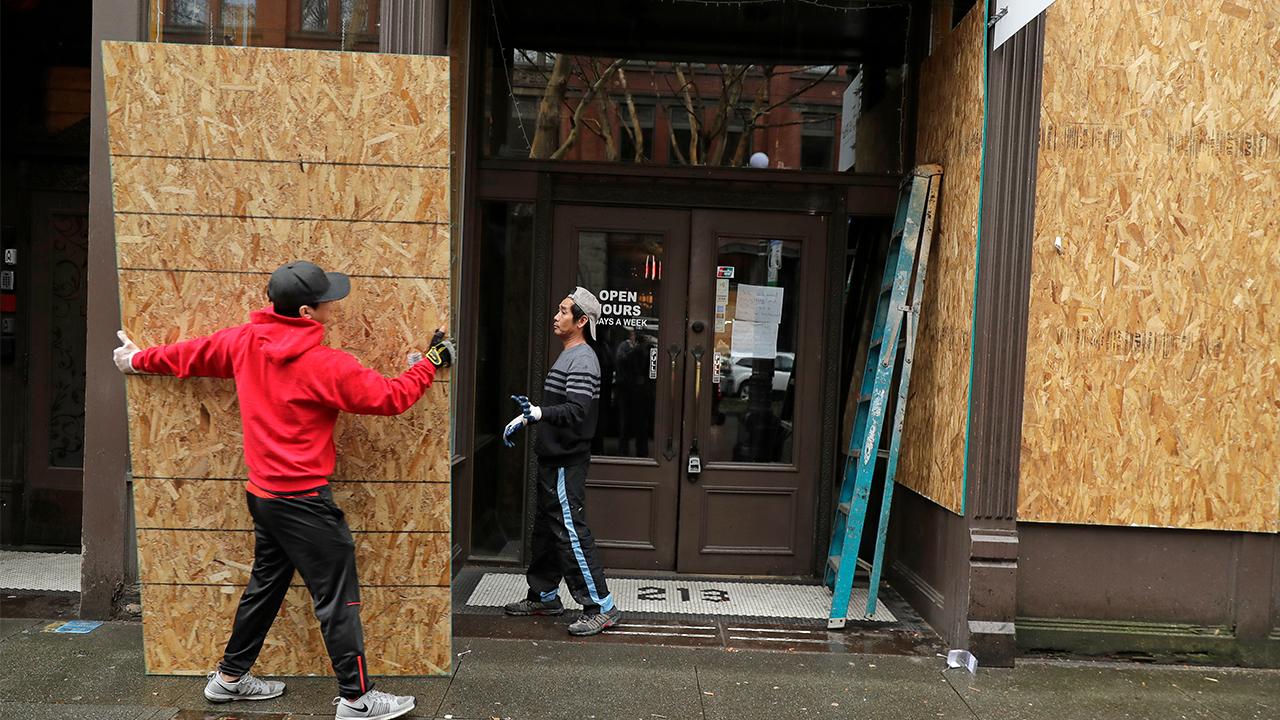Senate to consider House bill easing coronavirus PPP restrictions 'soon,' McConnell says
Rubio, McConnell have both backed the bipartisan House bill
Key Senate Republicans have endorsed a bipartisan House bill that would give small business owners who tapped a federal aid program more flexibility in how they spend the loans.
Senate Majority Leader Mitch McConnell and Sen. Marco Rubio, the chair of the Small Business Committee, have both backed the Paycheck Protection Program Flexibility Act, which the House passed in a nearly unanimous 417-1 vote last week.
UNEMPLOYED AMERICANS WOULD RECEIVE $1,200 BACK-TO-WORK BONUS IN NEW REPUBLICAN BILL
“I hope and anticipate the Senate will soon take up and pass legislation that just passed the House by an overwhelming vote of 417-1 to further strengthen the Paycheck Protection Program so it continues working for small businesses that need our help,” McConnell said Monday in a speech on the Senate floor.
The Paycheck Protection Program, a centerpiece of the $2.2 trillion CARES Act signed into law at the end of March, provided forgivable loans of up to $10 million to businesses with fewer than 500 workers affected by the coronavirus pandemic. In order for the loans to be forgiven, businesses have to adhere to strict requirements; however, the bill passed on Thursday would ease some of those restrictions.
Loan recipients would only have to spend 60 percent of the aid on maintaining payroll — including salary, health insurance, leave and severance pay — rather than the current 75 percent rule (plus they would no longer have to rehire workers by June 30). The remaining 40 percent could go toward operating costs like rent and utilities.
WHAT HAPPENS TO YOUR UNEMPLOYMENT BENEFITS IF YOU REFUSE TO GO BACK TO WORK?
"There’s some issues with it that are going to cause people problems, and I just want everybody to know that ahead of time," Rubio said, according to MarketWatch. “I think still we’re better off passing it than not passing it.”
Businesses would also have 24 weeks to spend the money instead of two months. The bill would also let small businesses that accessed the fund defer payroll taxes.
The second round of PPP funding began April 27 after the initial tranche of $349 billion evaporated in just 13 days. As of Saturday, more than 4.42 million loans worth close to $511 billion had been distributed through the program. Congress allocated about $610 billion to the PPP, leaving roughly $100 billion left over in the fund.
CONGRESS HAS FUNNELED TRILLIONS TO CORONAVIRUS RELIEF. WHERE IS THAT MONEY GOING?
The legislation attempts to address the growing concern among small business owners that the PPP loans simply don't meet their needs. In some cases, the extra $600 per week in unemployment benefits established by the CARES Act has snarled efforts by businesses to bring workers back, with employees reluctant to forfeit a bigger paycheck and return to their job when the risk of contracting the virus remains high.
Roughly two-thirds of workers on unemployment are earning more from the government aid than they did at their old job, according to a paper written by economists at the University of Chicago's Becker Friedman Institute.
Small business owners have also cited confusion and uncertainty around the forgiveness process -- and are worried about potentially being on the hook for the money.




















